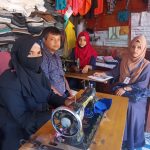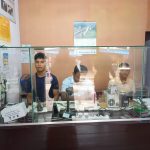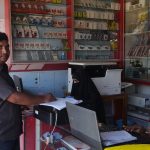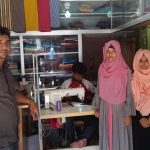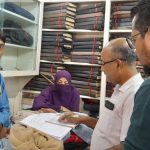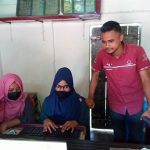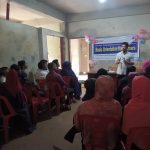Implementing Partner: BASTOB-Initiative for People’s Self Development.
No of Beneficiary: 150 learners (50 in each branch) and 75 Master Craft Person (MCP)
Target Group: 14-18 age school dropout youth group (Male 40% and Female 60%)
Coverage Area: Harbang & Sobuj Bazar (2 branches in Harbang & 1 in Sobuj Bazar)
Goal: Strengthen social cohesion and reduce fragility by mitigating the negative consequences of the Rohingya Crisis on vulnerable communities in Cox’s Bazar.
Trade: TDMF (Tailoring and Dress Making-Female), TTMM (Tailoring and Dress Making-Male), IST (IT Support Technician), MPS (Mobile Phone Servicing), MSM (Motorcycle Service Mechanic), BSF (beauty Saloon-Female)
Activity Summary: Partnership Reinforcement for Integrated Skills Enhancement (PRISE) is an apprenticeship-based project implemented through a partnership with local NGOs. In the guidance of BRAC, BASTOB paired the apprentices and placed them under the guidance of ustads/master craftspeople who already run their own businesses and have been trained on competency-based training techniques. BRAC provided multiple skill development training to BASTOB master craft persons (MCP) on their particular trades, focusing strengthen our 150 school dropout learners. After the training, leaners now go to their respective MCP’s shop 5 days per week and 1 day for soft skill class at BASTOB office. Soft skills training focuses on developing skills such as communication, teamwork, and problem-solving. Soft skills are personal skills that usually directly complement hard or technical skills. BASTOB Peer Leaders (PL) who conduct the class play a big role in equipping young, impressionable students with the right soft skills.
Success Story: Skills development is an urgent need because of the high number of the underemployed youth groups in Harbang & Sobuj Bazar areas. After the orientation of parents and learners in BASTOB office, they all are now aware of the importance of skill development trainers for their children. Above 70% of the trainees start earning money after receiving the training. Parents come to BASTOB Harbang & Pekua office and submit related papers/documents for enrolling next year’s new participants where the female student rate is higher. The quality of working methods currently being done in various trades is satisfactory.
There are currently two trades ahead. In these two trades, TDMF and BSF, students have started earning by learning to work. Parents and students are showing more interest in learning to work in these two trades. BASTOB believes the number of trainees in these two trades will increase a lot next year. The quality of work of person with disabilities (PWD) students is satisfactory. Supervision and monitoring have been increased for them to complete their work separately in MCP, TT, and Peer Leader classes. It is expected that they will be able to complete the work as per the target by next January.
Challenges:
- To identify 14 to 18 years old school dropout trainees.
- To identify experience MCP with theoretical knowledge of their trades.
- Lack of interest of community people to attend any skill development training.
- To identify school dropouts and disabled students.
- Inadequate materials in MCP workshops.
- No provision for any covid-19 items in the budget during parent meetings, market committee meetings, technical trainers meetings, and Peer leader’s training.
- Insufficient travel and internet bills for Program Organizers (Pos).

